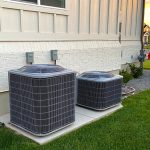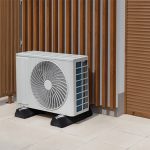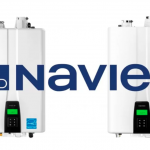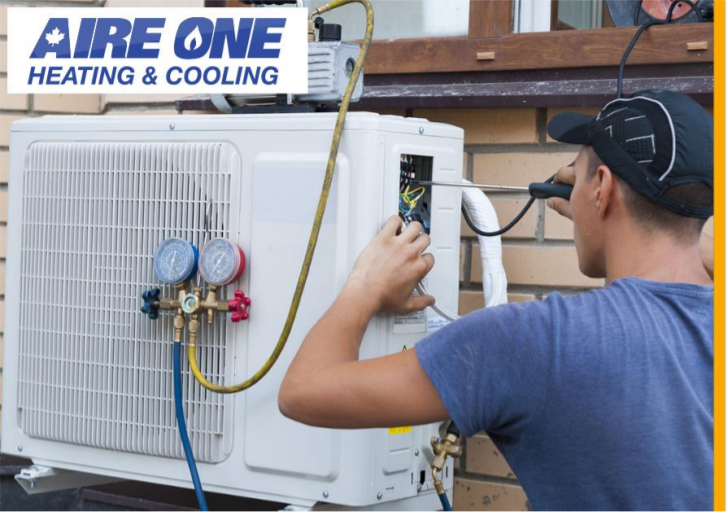In the last several years, hybrid systems have become extremely popular for their ability to heat and cool homes efficiently. It is a system that combines two kinds of technology to enhance flow and energy use efficiency. Most hybrid systems consist of a standard furnace paired with an electric heat pump, which makes it more efficient than a standard furnace. This blog will cover how hybrid systems are more efficient compared to normal furnaces.
But first, it’s worth knowing how a standard furnace works. A furnace burns natural gas, propane, or oil to heat air, which is then circulated through the home via ductwork. Furnaces are effective, reliable heating sources, but its components can be very inefficient, especially if they are older models. Since a great deal of heat is lost in the combustion process, furnaces also often require a large amount of energy to keep the system up and running.
An alternative is a hybrid system, which uses both a furnace and an electric heat pump. A heat pump operates by removing heat from the outside air and bringing it into the house. In the summertime, it can function as an air conditioner by reversing the process of the heat pump. The furnace sits dormant until it is cold enough outside that the heat pump can’t effectively heat the home; then your furnace kicks in and works with the heat pump to help maintain main and place temperature.
The magic of a hybrid system is that it can switch between the two technologies based on the outside temperature. The heat pump works very well when the temperatures are moderate but struggles once the temperatures drop. The furnace, however, is much less effective in such extreme conditions, however it can also still heat your home during extreme temperatures. This hybrid system can minimize energy usage and thus save homeowners money by lowering their utility bills by integrating the two technologies.
The fact that it isn’t all song and dance stylings helps: A hybrid system can also cut down on carbon. When paired with a heat pump—an electric device that moves heat instead of relying on fossil fuels— the system can lower carbon emissions and lessen the stress on the environment. Not only are hybrid systems more efficient than conventional furnaces, they are also more flexible. They may be tailored to the unique needs of the property owner and are adaptable for various climates. In fact, in milder winter climates it may be possible for a hybrid system to serve all of the heating needed, whereas in more severe winter climates the furnace may cycle more frequently.
For those seeking to determine if a hybrid heating and cooling system is right for their home, read on to learn more about this option.













